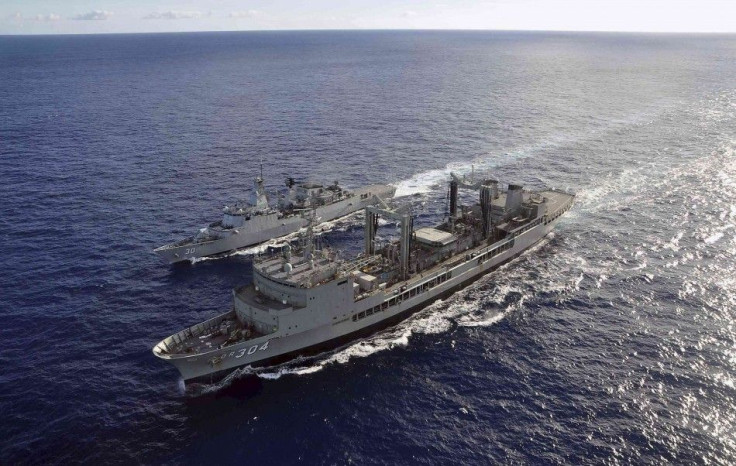Malaysia Airlines MH370: Search for Month-long Missing Plane History’s Most Expensive, to Exceed Air France Flight AF447 in 2009

Exactly a month after it went missing, Malaysia Airlines MH370 still has yet to be found. The combined forces of 26 nations still have yet to find definite pieces of evidence leading to its possible wreckage site. All that remains conclusive is the millions of dollars thrown into the search and retrieval operations.
In just 30 days, the search for the elusive Malaysia Airlines MH370 has consumed $44 million, according to estimates compiled by Reuters.
But the figures only concerned the deployment of military ships and aircraft by Australia, China, the United States and Vietnam in the Indian Ocean and South China Sea. It does not cover yet the defence assets being used by countries, including Britain, France, New Zealand and South Korea, as well as other costs such as civilian aircraft, accommodation for hundreds of personnel and expenses for intelligence analysts around the world.
But even so, the $44 million estimate has already paralleled the cash poured out over a two-year time frame for Air France's Flight AF447. The latter crashed into the Mid-Atlantic in 2009.
Then again, this is just the first month. Experts believe the bill for Malaysia Airlines MH370 could balloon into hundreds of millions of dollars.
Kym Bergmann, editor of Asia-Pacific Defence Reporter and a former government defence adviser, said that for Australia alone, the search effort for MH370 is already costing the Australian Defence Force (ADF) "A$800,000 per day and possibly considerably more than that."
"While that might not sound like much compared with the ADF's annual sustainment budget of A$5 billion, if this continues for much longer other activities such as 'Operation Sovereign Borders' will be under pressure to find savings," he added.
Last week, the U.S. Pentagon disclosed it had already spent more than $3.3 million on the search. It has further plans to double its original $4 million budget.
China has yet to publicly declare how much it has contributed to the search and retrieval operations. But the Global Times has reported that the two Ilyushin Il-76 aircraft the country has deployed costs $10,000 per hour on fuel alone. It doesn't include yet maintenance or accommodation for the crew, while operating costs for the Chinese warships cost at least $100,000 per day, the newspaper added.
Australia and Malaysia have hinted they will bear the majority of the expenses for the elusive Malaysian Airlines MH370.
"It's only reasonable that we should bear this cost - it's an act of international citizenship," Australian Prime Minister Tony Abbott said last week.
But then, PM Abbott knows he has to be realistic.
"At some point, there might need to be a reckoning, there might need to be some kind of tallying, but nevertheless we are happy to be as helpful as we can to all the countries that have a stake in this."





















